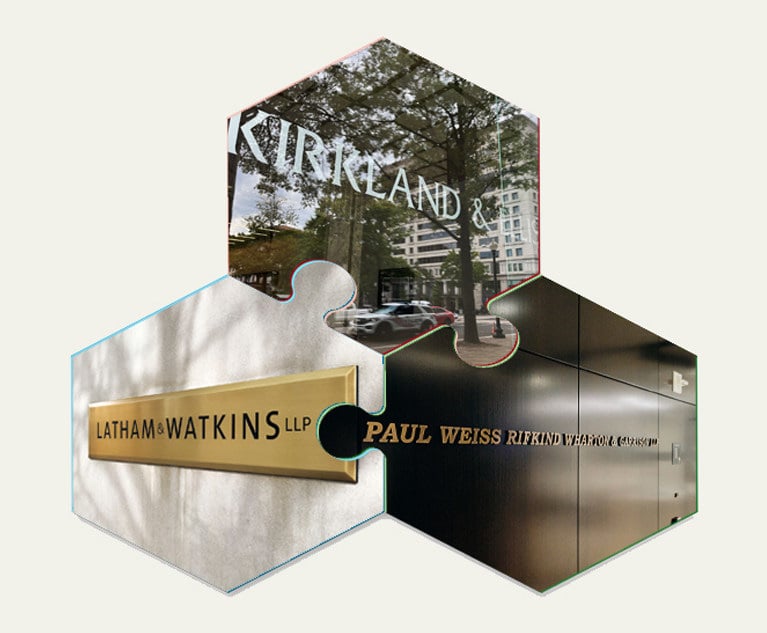'Hey, Journalists Are Infuriating, Too,' Says PR Pro to The Careerist
Recently, I wrote "9 Ways You're Ticking Me Off" about how public relations and marketing people drive me crazy. Here's a response from one Big Law communications pro on how journalists get under his skin.
April 15, 2019 at 05:53 PM
4 minute read
 Photo: Shutterstock
Photo: Shutterstock
I don't hold back, and I don't expect my readers to either. I like it when readers tell me what they think—especially if they vehemently disagree with me.
Recently, I wrote “9 Ways You're Ticking Me Off“ about how public relations and marketing people drive me crazy—like asking me to lay off the sarcasm when I write about their firm or telling me the partners would like to “pre-approve” my article.
I got a bunch of reactions to my post on the “9 Ways.” Most PR/marketing types thought my comments were helpful, though one took umbrage that I referred to PR professionals as “flacks” (he asked how I would feel if journalists were called “hacks”; for the record, I'm cool with that.)
But John Buchanan, senior communications manager at Sheppard, Mullin, Richter & Hampton, wrote an analog to my post: The ways journalists annoy his profession. Without further ado, here is Buchanan's piece:
Nine Things Journalists Do That Drive PR People Crazy: A Primer for Journalists
By John Buchanan
Did you get my email??? If you've read my pitch—and it wasn't a blanket/broadcast pitch—but one specifically for you, can you at least acknowledge receipt? I'm a big boy and I can take a “No thanks. Not interested.” But not hearing back at all? Not cool.
Just checking. I would rarely ask to see what you're going to publish before it comes out—but if your questions were complicated (or the answers were) why isn't it OK to ask to see quotes for accuracy or context? It's a reporter's (or editor's) prerogative to say “yes” or “no,” but can you at least consider it on a case-by-case basis?
 Be careful with “comments.” When comments are “off the record,” don't then use those comments and then identify who said them. And please don't write, “The firm did not respond to requests for comment,” when you didn't even reach out in the first place (even if you didn't have time).
Be careful with “comments.” When comments are “off the record,” don't then use those comments and then identify who said them. And please don't write, “The firm did not respond to requests for comment,” when you didn't even reach out in the first place (even if you didn't have time).
Bad news, baby! If the piece you are writing is going to be unflattering to my firm, please give me ample opportunity to get firm leadership's OK to respond and their OK on how to respond. I'm not scared to tackle tough questions or sticky stories, but please understand, depending on the issue at hand, it may take several hours to get internal approvals from an attorney, a client or firm leadership.
Just for YOU. If I'm offering you an exclusive you can guarantee that's exactly what it is. I understand how many emails you get every day, but if I've chosen you for this insight, do me the courtesy of responding, so I can move on to another reporter if I need to.
Say “no” to “no comment.” Totally agree it's always better to comment than to say, “No comment.” There are two sides (sometimes more) to every story. We always try to say something. But law firms, especially in Big Law, are conflicted out of commenting a lot of the time. Please understand that some clients specifically tell us that we cannot comment—in any way—on the work we do for them. It's not that we don't want to help you, it's that we can't help you.
Correction! After your story runs, and I notice a factual error and contact you about running a correction, please don't: 1) ignore me; 2) act like you are infallible; or 3) take days to make the correction. The beauty of online journalism is that you can make corrections and updates almost instantaneously.
CC me, please. I'm all for you having direct relationships with the attorneys I work for, and I know you'd much rather talk to them than talk to me, but can you keep me in the loop? Even just a cc on an email is helpful. My lawyers generally think I know about all of our contacts with the media, and when I don't, I look like a dunce.
On the cutting room floor. I know there's never a guarantee that everyone you interview for a story ends up being quoted, but can you at least give me a heads-up if you know we're going to make it into your story or not? It's always better if I can tell an attorney that we didn't end up being mentioned before the story runs.
Contact Vivia Chen at [email protected]. On Twitter: @lawcareerist.
This content has been archived. It is available through our partners, LexisNexis® and Bloomberg Law.
To view this content, please continue to their sites.
Not a Lexis Subscriber?
Subscribe Now
Not a Bloomberg Law Subscriber?
Subscribe Now
NOT FOR REPRINT
© 2025 ALM Global, LLC, All Rights Reserved. Request academic re-use from www.copyright.com. All other uses, submit a request to [email protected]. For more information visit Asset & Logo Licensing.
You Might Like
View All

Letter from Asia: As American Firms Retreat, Will Loyal UK Firms Regain Market Share In Asia?


Change Is Coming With the New Trump Era. For Big Law, Change Is Already Here
6 minute readTrending Stories
- 1Big Law Firms Sheppard Mullin, Morgan Lewis and Baker Botts Add Partners in Houston
- 2Lack of Jurisdiction Dooms Child Sex Abuse Claim Against Archdiocese of Philadelphia, says NJ Supreme Court
- 3DC Lawsuits Seek to Prevent Mass Firings and Public Naming of FBI Agents
- 4Growth of California Firms Exceeded Expectations, Survey of Managing Partners Says
- 5Blank Rome Adds Life Sciences Trio From Reed Smith
Who Got The Work
J. Brugh Lower of Gibbons has entered an appearance for industrial equipment supplier Devco Corporation in a pending trademark infringement lawsuit. The suit, accusing the defendant of selling knock-off Graco products, was filed Dec. 18 in New Jersey District Court by Rivkin Radler on behalf of Graco Inc. and Graco Minnesota. The case, assigned to U.S. District Judge Zahid N. Quraishi, is 3:24-cv-11294, Graco Inc. et al v. Devco Corporation.
Who Got The Work
Rebecca Maller-Stein and Kent A. Yalowitz of Arnold & Porter Kaye Scholer have entered their appearances for Hanaco Venture Capital and its executives, Lior Prosor and David Frankel, in a pending securities lawsuit. The action, filed on Dec. 24 in New York Southern District Court by Zell, Aron & Co. on behalf of Goldeneye Advisors, accuses the defendants of negligently and fraudulently managing the plaintiff's $1 million investment. The case, assigned to U.S. District Judge Vernon S. Broderick, is 1:24-cv-09918, Goldeneye Advisors, LLC v. Hanaco Venture Capital, Ltd. et al.
Who Got The Work
Attorneys from A&O Shearman has stepped in as defense counsel for Toronto-Dominion Bank and other defendants in a pending securities class action. The suit, filed Dec. 11 in New York Southern District Court by Bleichmar Fonti & Auld, accuses the defendants of concealing the bank's 'pervasive' deficiencies in regards to its compliance with the Bank Secrecy Act and the quality of its anti-money laundering controls. The case, assigned to U.S. District Judge Arun Subramanian, is 1:24-cv-09445, Gonzalez v. The Toronto-Dominion Bank et al.
Who Got The Work
Crown Castle International, a Pennsylvania company providing shared communications infrastructure, has turned to Luke D. Wolf of Gordon Rees Scully Mansukhani to fend off a pending breach-of-contract lawsuit. The court action, filed Nov. 25 in Michigan Eastern District Court by Hooper Hathaway PC on behalf of The Town Residences LLC, accuses Crown Castle of failing to transfer approximately $30,000 in utility payments from T-Mobile in breach of a roof-top lease and assignment agreement. The case, assigned to U.S. District Judge Susan K. Declercq, is 2:24-cv-13131, The Town Residences LLC v. T-Mobile US, Inc. et al.
Who Got The Work
Wilfred P. Coronato and Daniel M. Schwartz of McCarter & English have stepped in as defense counsel to Electrolux Home Products Inc. in a pending product liability lawsuit. The court action, filed Nov. 26 in New York Eastern District Court by Poulos Lopiccolo PC and Nagel Rice LLP on behalf of David Stern, alleges that the defendant's refrigerators’ drawers and shelving repeatedly break and fall apart within months after purchase. The case, assigned to U.S. District Judge Joan M. Azrack, is 2:24-cv-08204, Stern v. Electrolux Home Products, Inc.
Featured Firms
Law Offices of Gary Martin Hays & Associates, P.C.
(470) 294-1674
Law Offices of Mark E. Salomone
(857) 444-6468
Smith & Hassler
(713) 739-1250










